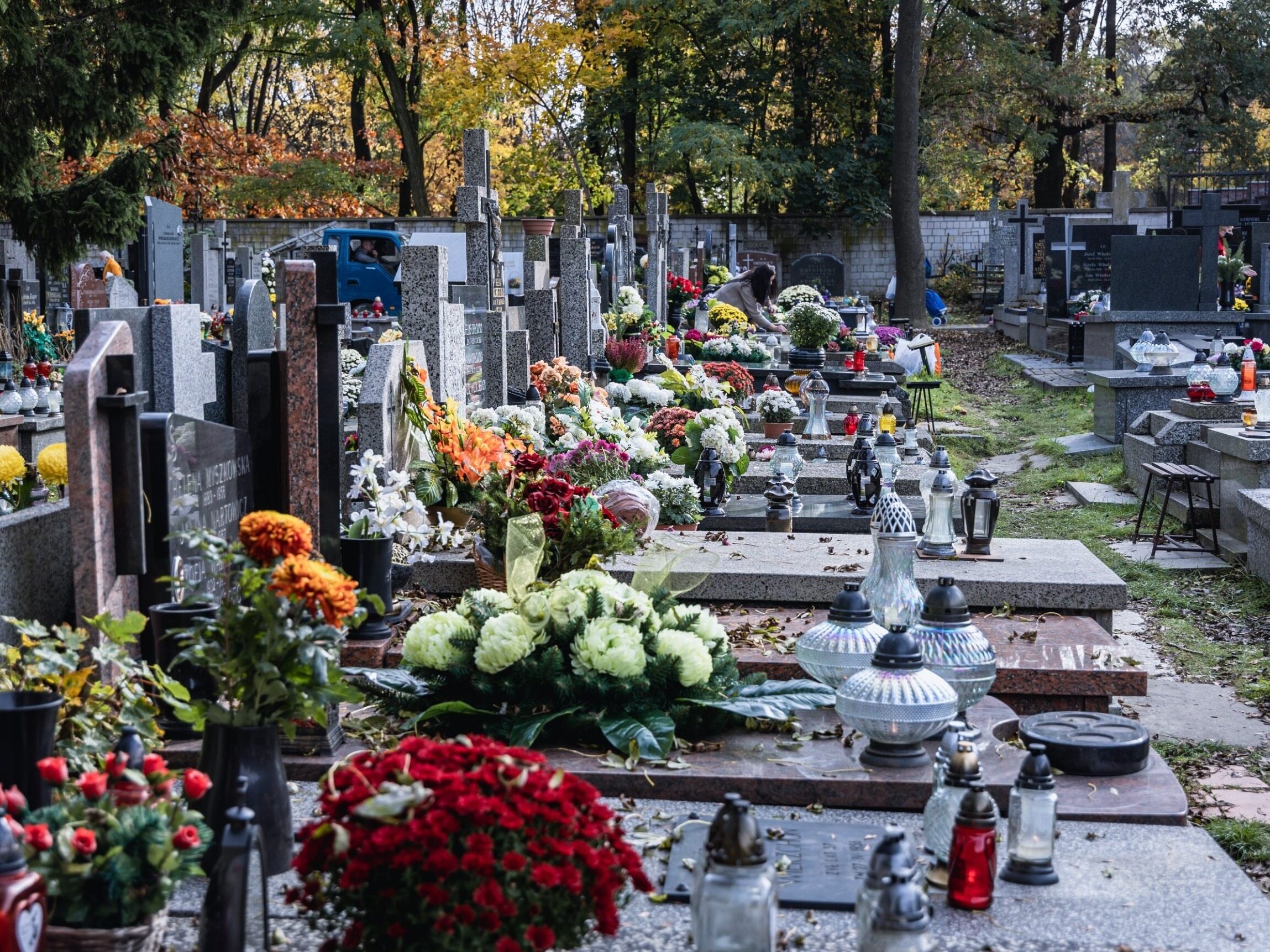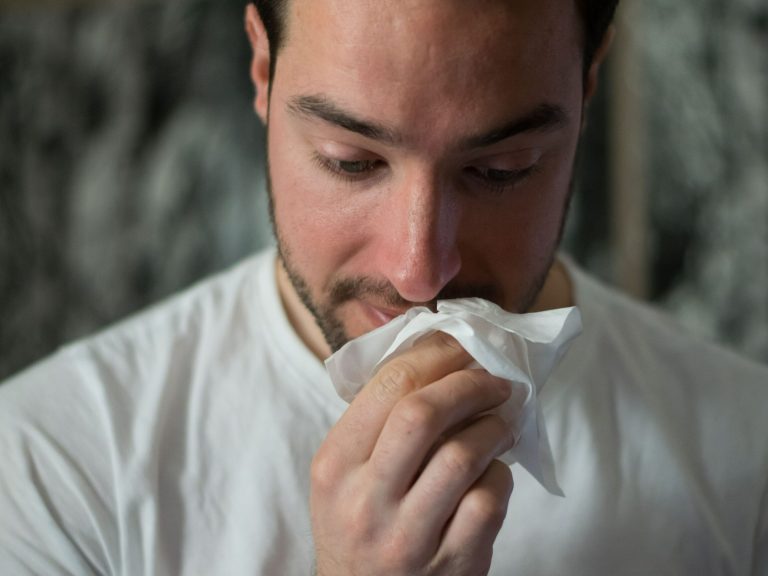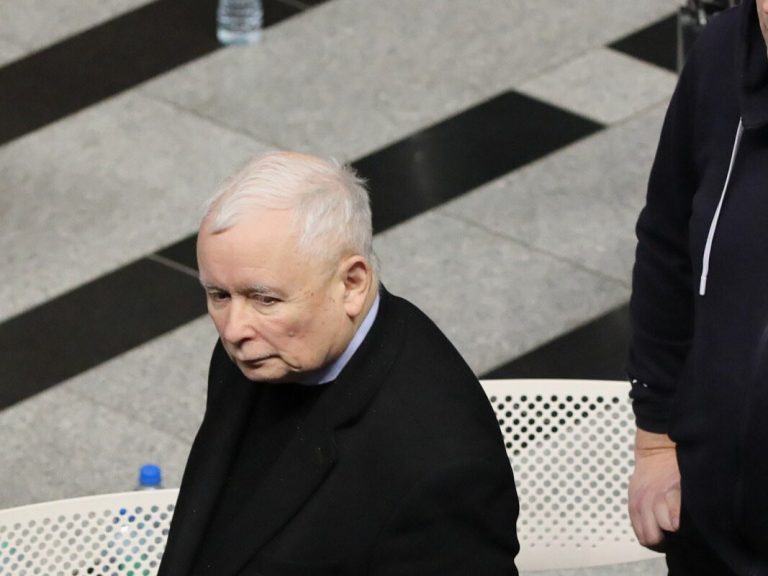Death is a taboo for us. “We’d rather fool ourselves that it doesn’t affect us than feel sad”

In everyday life, people talk about dying reluctantly because it is considered a difficult topic. However, All Saints’ Day attracts thoughts to loved ones who are no longer there and makes us think about transience, departure and death, which is an inevitable part of life. – People die at all ages. But we prefer to deceive ourselves that it does not apply to us, so as not to feel fear, sadness or discomfort, says psychologist Magdalena Chorzewska.
The time around All Saints’ Day is probably the only time of the year when the topic of death is a little closer to us. In everyday life, we tend to push this disturbing thought as far away from ourselves as possible. We are afraid of dying and we don’t want to think or talk about it. Why is the topic of death so difficult and evokes so many negative emotions in us?
Magdalena Chorzewska, psychologist: I know why, I am personally afraid of death. I don’t know what it is from the perspective of the dying person and I don’t know what to expect. In my mind, this is a distant prospect, and in the rush of life I don’t see much room for death. Many people in their 40s probably feel the same way, but people at this age die. But we prefer to deceive ourselves that it does not apply to us, so as not to feel fear, sadness or discomfort.
I think that we, modern people, are not familiar with death. For most of us, it appears as a sad moment when an elderly person passes away or after a serious illness. It usually involves loss and suffering, and that’s what we want to avoid. Many people protect their children from funerals, and this is a mistake. Dying is part of life. There was even a film called “Life as a Fatal Sexually Transmitted Disease”.
I remember when I was a child and attended the funerals of my grandfather and great-grandmother. Their bodies lay in a coffin in the house. The family said goodbye to the dead. I felt no fear. For me it was an experience in which I felt safe. Today, this entire process is highly commercialized. The deceased rarely dies at home, they quickly go to the funeral home. There is a designated time for the family to say goodbye to the deceased. It’s a bit of a hassle, because relatives of the deceased from the next hour are often waiting in front of the funeral home. And yet, after the death of someone close to us, we need time to find our way, a moment to stop, to be with the body of the person we love and to whom we say goodbye forever.
Are we more afraid of death or the dying process, e.g. the disease associated with it?
Possibly both. It all depends on what beliefs we have about death. If we have experienced the death of our loved ones in pain and suffering, we will probably be more afraid of it than a person who said goodbye to loved ones who passed away peacefully at night, at an age when death is more acceptable.
The fear of death is so great that we are often afraid to talk to a dying person. How to do it?
I don’t like to generalize. I know people who professionally accompany the dying and their families during their passing. I know people who stayed with their mothers or fathers until their last breath, remembering to tie their beards so that their faces wouldn’t look strange.
I know people who are afraid of their helplessness in the face of death, because we live in a world full of action and it is difficult to be able to do nothing but come to terms with death. I know people who accompany their dying children. They are afraid of death, but they are also afraid of staying in this world without their beloved child.
In psychology, there is also a type of phobia, a strong fear of death. I do not mean the simple fear of death, but the entire spectrum of symptoms of anxiety disorders, i.e. at the level of thoughts, emotions, physiology and behavior. People suffering from this disorder avoid talking about death and do not confront the death of loved ones.
If someone does not have these disorders, it is not much easier for them to come to terms with death and the fact that it happens to each of us. How to overcome this fear? Can this be done at all?
If we talk about thanatophobia, it is a disorder that is treated by mental health specialists. Cognitive-behavioral psychotherapy will work very well here.
When it comes to ordinary anxiety, which is not a disorder and does not meet the criteria, encountering an anxiety-producing stimulus and experiencing it can usually be very helpful. It is much easier to survive the death of loved ones if you have already had such experiences.
My office is often visited by people who have lost grandparents or parents and who have never experienced death before; they cope with grief much worse than someone who has already had such an experience. The older a person gets, the more familiar he or she becomes with death. His loved ones slowly pass away, and finally he himself. Sad but true.
Maybe getting used to dying from an early age could be a sure recipe for dealing with this fear. Should you talk about death with your children? How to do it?
Yes, it is necessary to talk to your children about death. I remember a certain patient who experienced the loss of a close family member. She only heard that her aunt died and that was it. She didn’t attend the funeral, she didn’t understand what happened and was afraid to ask because whenever she tried, she was dismissed. The parents probably wanted to protect her, but the children, having no answers, begin to search for her.
That’s why it’s worth talking to children about death. From their perspective it is not as terrifying as from ours. We have experienced it many times. A child usually asks: what does it mean that someone dies, and what happens to a person after death, and will you, mom, dad, die too? There is no point in inventing anything, let’s respond according to what we believe in.
If in God, let’s talk about heaven, angels and the fact that when the right time comes, usually in old age, God calls us to Himself. If we are not believers, let’s say that everyone has a specific time on earth. People die for various reasons, most often from old age. That after death the body stops working. The heart stops beating and the person no longer wakes up.
It’s important to take children’s questions seriously. They want and have the right to know. This is not about bloody descriptions full of suffering, but about the truth presented in a way adapted to the age and sensitivity of the child. A great educational film about death may be the fairy tale COCO. I recommend it to everyone.
Can holidays such as Halloween or our traditional All Saints’ Day help us get used to the topic of death?
Children associate holidays like Halloween with dressing up and candy. Not with death. All Saints’ Day is rather overwhelming. This is often not the right time to get used to death because there are too many things going on: it is rather cold, the whole family and friends meet at the grave.
Too many stimuli and too little space for such important conversations with the child. Any time during the year when we can focus on the conversation is a good time to educate ourselves about death. You can take your child for a walk to the cemetery. I recommend, for example, Powązki.
Is it possible to prepare mentally and emotionally for death at all?
Mental preparation for the death of a loved one is difficult. You can know the theory about the psychological aspects of mourning, you can imagine it and be familiar with it, e.g. after a long illness of a loved one.
This does not change the fact that the loss of loved ones hurts and we never know how much it will affect us and how much grief, emptiness, sadness and anger we will encounter. It is much easier to cope with the death of loved ones if we have the support of other people important to us and seek the support of professionals if necessary.






